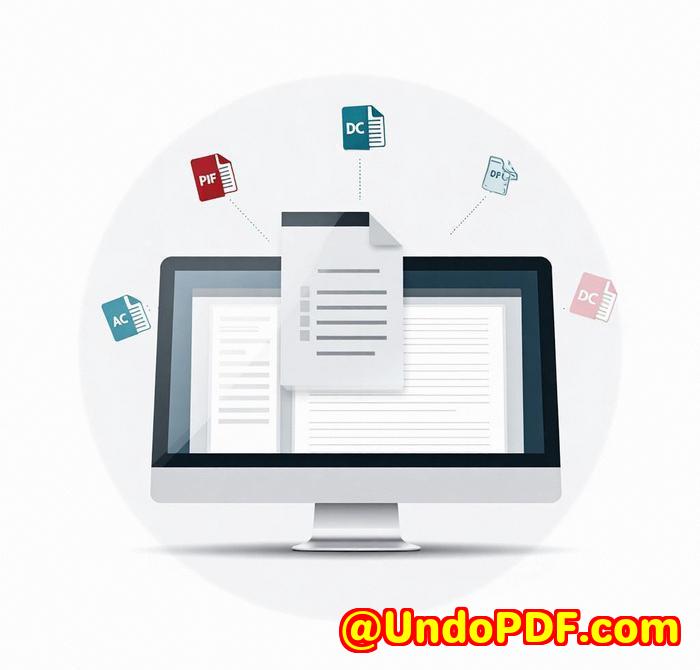Automate PDF Merging and Metadata Tagging for Archiving with Java Command Line Tool
Every day, professionals in various fieldsfrom law firms to enterpriseshandle massive amounts of documents, and PDFs are often the format of choice. But what happens when you have a mountain of PDF files to process? How do you merge them, add metadata, and automate the entire process without spending hours on manual tasks? Enter VeryUtils Java PDF Toolkit (jpdfkit).

This Java-based command line tool has made my life so much easier when dealing with multiple PDFs. With just a few commands, you can perform powerful operations like merging PDFs, tagging metadata, and moreall from the comfort of your terminal. Trust me, it’s a game changer, especially for teams that deal with large PDF workflows.
What is VeryUtils Java PDF Toolkit?
VeryUtils Java PDF Toolkit (jpdfkit) is a versatile and powerful Java library designed to help businesses automate PDF-related tasks. It runs on Windows, Mac, and Linux, meaning you can use it on almost any system. Whether you’re a developer looking to integrate PDF manipulation into your software or simply someone looking to streamline PDF processing, this tool is for you.
The core strength of jpdfkit lies in its ability to work seamlessly with PDF files via the command line. It allows you to merge, split, rotate, watermark, encrypt, decrypt, and even work with PDF formsall without needing Adobe Acrobat. But what sets it apart is its automation capabilities, making it perfect for batch processing and server-side operations.
Key Features of VeryUtils Java PDF Toolkit
When I first started using jpdfkit, the range of features immediately caught my attention. Some of the standout capabilities include:
-
Merge PDFs and Organise Files
Merging PDFs used to be a manual nightmare. But now, I simply use the command:
This quick command collates multiple PDFs into one cohesive fileno more copy-pasting or rearranging pages by hand.
-
PDF Metadata Management
Updating and extracting metadata from PDFs can be time-consuming. With jpdfkit, I can instantly generate a report of PDF metadata with this command:
You can even add or update metadata, making this a great option for archiving purposes where metadata plays a critical role in file organisation.
-
Password Protection and Encryption
Security is always a concern, especially when handling sensitive documents. With jpdfkit, I can easily encrypt a PDF with a password by running:
This gives me peace of mind knowing my documents are secure, and the process is fully automated.
Real-World Use Cases: How I Use It
Let me share a real scenario. As someone who regularly deals with PDF reports, invoices, and contracts, merging and securing documents used to be a manual nightmare. But with jpdfkit, I set up automated scripts that take care of these tasks for me. I no longer have to manually open each file, make edits, or merge them together. Instead, I just run the commands, and the tool does the rest.
For instance, when I need to merge several scanned documents into one file, it’s as simple as:
Why VeryUtils Java PDF Toolkit Stands Out
After testing several tools, jpdfkit quickly became my go-to for all PDF processing tasks. Here’s why:
-
Command-Line Efficiency
The ability to process PDF files through the command line is a huge time-saver. It means I can automate tedious tasks, leaving more time for other important work. No GUI, no hassle, just efficiency.
-
Cross-Platform Support
Whether I’m on a Windows laptop or a Linux server, jpdfkit works flawlessly across platforms. This ensures my workflow stays uninterrupted, regardless of the environment.
-
Security and Compliance
The built-in encryption features are ideal for handling sensitive or confidential files. I can lock down PDFs with passwords or permissions, ensuring my files stay secure without extra steps.
Conclusion: Why I Recommend It
If you work with PDFs regularly and need to automate tasks like merging, splitting, or securing documents, I’d highly recommend giving VeryUtils Java PDF Toolkit a try. It’s saved me countless hours and allowed me to focus on more important tasks, all while simplifying the management of PDFs.
Ready to streamline your PDF workflow?
Start automating your PDF processes with jpdfkit. Click here to try it out for yourself and see how it can revolutionise your document management.
Custom Development Services by VeryUtils
If you have unique technical needs, VeryUtils offers custom development services to tailor solutions to your specific requirements. Whether you need custom PDF processing, enhanced security features, or integration with your existing software, VeryUtils has you covered. They offer expert services for Java, Python, PHP, .NET, and more, ensuring that your project is in capable hands.
For more information, visit the VeryUtils support center.
FAQ
Q1: How can I merge multiple PDF files using jpdfkit?
Simply run the command java -jar jpdfkit.jar file1.pdf file2.pdf cat output merged.pdf. It’s that easy!
Q2: Can I encrypt a PDF using jpdfkit?
Yes, use the command: java -jar jpdfkit.jar input.pdf output encrypted.pdf owner_pw 123 user_pw 456 to secure your document.
Q3: Does jpdfkit support batch processing?
Absolutely! You can automate PDF processing tasks using command-line scripts for batch processing.
Q4: Can I use jpdfkit on any operating system?
Yes, jpdfkit works on Windows, Mac OS, and Linux, ensuring compatibility across various platforms.
Q5: Can jpdfkit handle PDF forms?
Yes, it offers full support for working with AcroForms and XFA forms.
Keywords:
-
Automate PDF merging
-
PDF metadata tagging
-
Command line PDF tools
-
Batch PDF processing
-
Secure PDF documents